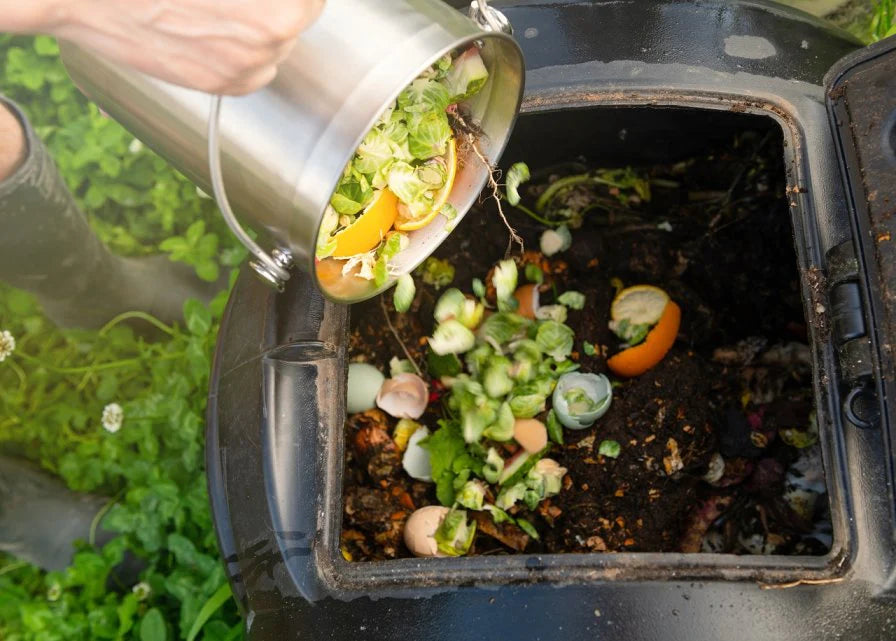OR
Express Checkout
We guarantee to have the lowest price! Find the same bin for a cheaper price and we will beat it!

Recycling and being kind to the environment is often best done by reducing your household waste as a whole. One great way of achieving this is by making your own compost out of the organic rubbish that you would usually throw away. Things like plant cuttings and food waste can be added to the pile to create an excellent fertiliser. Even if you don’t own a garden, many local farmers will be willing to buy it from you to spread across their fields and crops – literally turning your rubbish into money. All you need do is invest in a compost bin and follow these six simple steps.

1. Know your browns from your greens
There are two types of ingredients that can be put into your compost pile: brown and green materials. The browns are carbon-rich items such as dry leaves, straw, dead flowers and shredded newspapers. Meanwhile, the greens supply nitrogen and consist of ‘fresher’ materials such as plant-based food waste, grass cuttings and farm animal manure. You’ll also need to add garden soil to the mixture as you continue to grow your pile.
2. Starting out
Lay down several inches of brown materials to start your pile, and follow up with a few more layers of greens. Top it all off with a thin coating of normal garden soil and again with another layer of the brown stuff. Continue this process for the next few weeks and eventually your pile will be a few feet high, which is all you need to form the perfect compost.
3. What waste?
Green waste is anything organic, like grass, peelings, salad leaves and apple cores. You can even save your old coffee grounds and teabags for the green layers. Meanwhile, brown waste includes more carbon-based household waste, such as egg shells, cereal boxes, toilet roll tubes, ashes, natural fibres like cotton and even the contents of the vacuum bag! All of these items and more can make great compost, meaning that they don’t need to end up heading to landfill.
4. Forking out
Don’t worry, this step won’t cost you a penny if you already own a garden fork or shovel, meaning that composting is a highly cost-effective way to reduce your household waste whilst organically fertilising your plants. Take your fork and begin to turn over the top layer, ensuring that the pile remains moist by spraying it lightly with a water bottle.
5. Worms galore
Whilst in your garden, if you spot a few worms, try adding them into the pile. Worms will also gravitate towards the pile naturally, as these creepy crawlies love the environment and help the compost process move along a lot more rapidly.
6. The result
After several months of this repeated process, you should be able to see a black, crumbly mixture forming before your eyes. You can either bag it up to sell on and donate, or spread it across your garden to add a natural, homegrown fertiliser for your plants to enjoy and thrive from.
